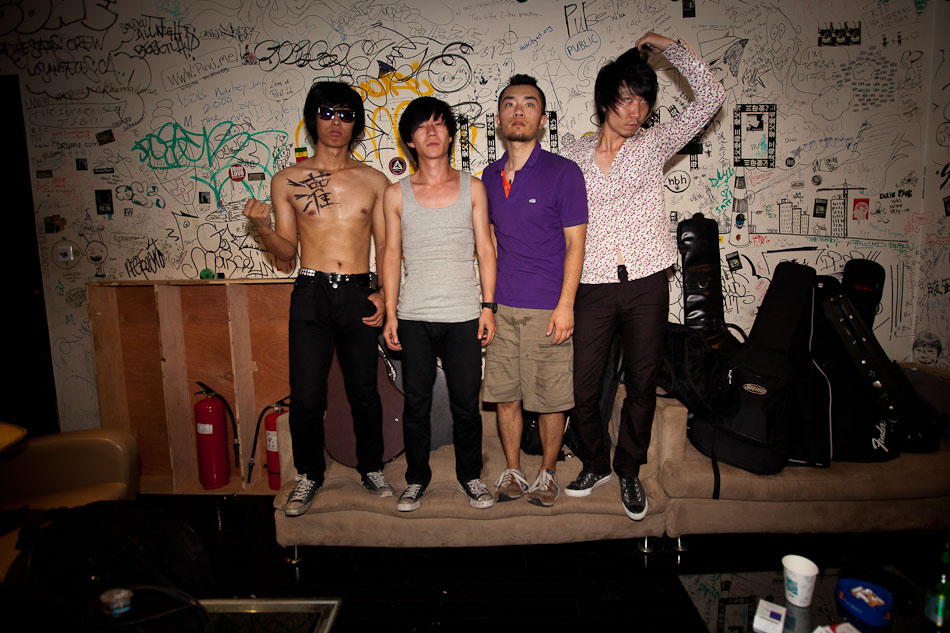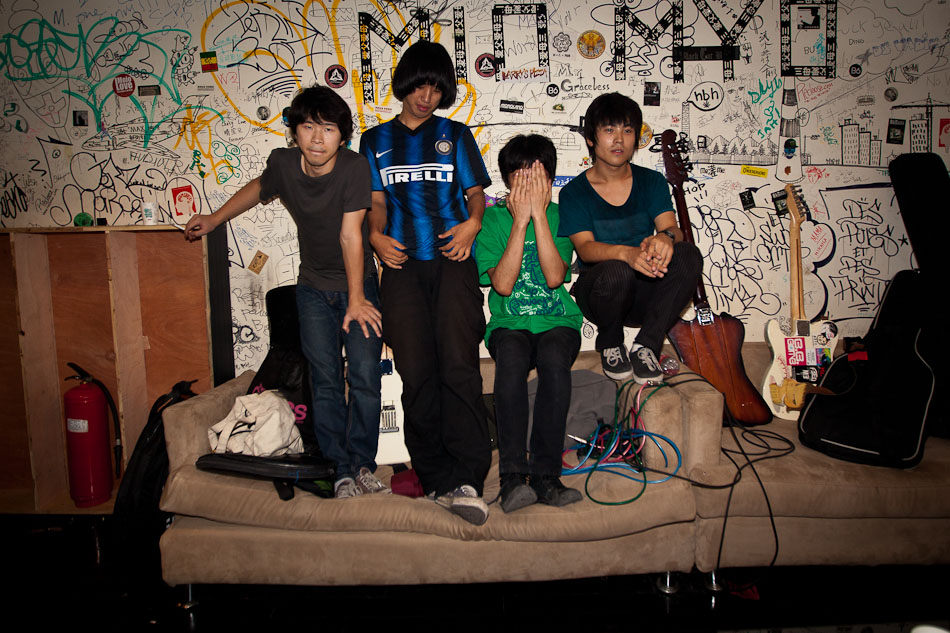Dec 2, 2011 | Clippings, Portraits
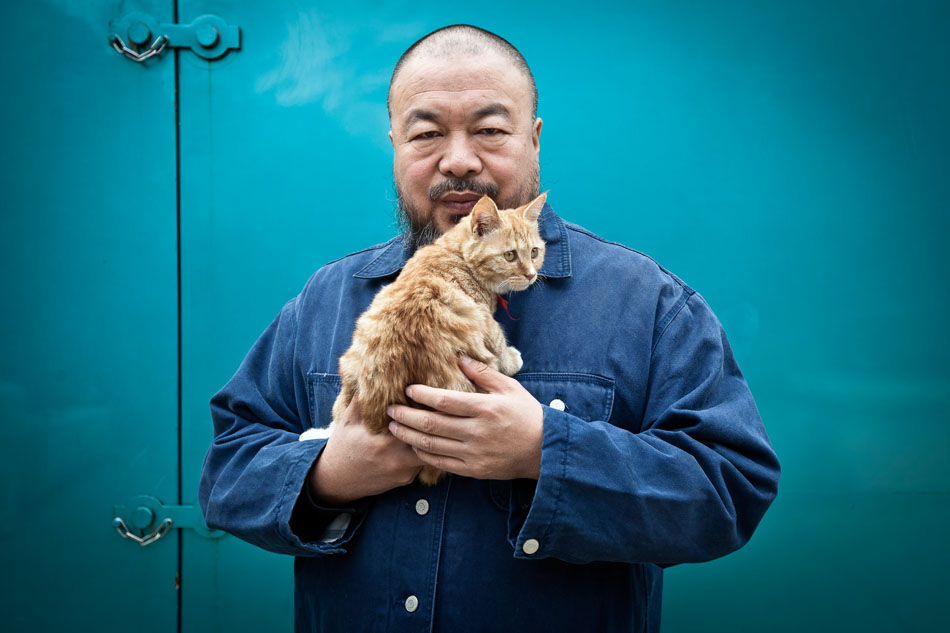
A few weeks ago I had the pleasure of visiting Ai Weiwei in his studio to take portraits for Foreign Policy’s Top 100 Global Thinkers list where he appeared at #18 in the rankings. He was very amiable and open to me directing him about his compound where I posed him with some of his favorite cats. Ai Weiwei is all over the news again. After a short period of silence following an 81-day incarceration, he continues to lash out at authorities and decry the trumped-up charges of tax evasion brought against him in an attempt to silence his outspoken criticisms. A recent Newsweek piece he penned where he related Beijing to a “nightmare” was especially noteworthy. This renewed vigor and boldness seem in large part due to the outpouring of support shown by anonymous Chinese donors who rallied behind him to raise $1.4 million to challenge his huge tax bill which he refers to as ransom money. Other admirers are finding more brazen outlets to show support by posting nude photos of themselves online in defense of other spurious pornography charges brought against Ai Weiwei for a set of revealing self portraits released on the Internet. To make things even more controversial, high profile figures are weighing in on the situation, including Taiwan’s president Ma Ying-jeou who visited his current exhibition at the Taipei Fine Arts Museum. It’s all quite a mess, but I am sure Ai Weiwei is pleased with himself for creating an even larger fuss than before his arrest – another great case of censorship backfiring in the face of the Chinese state.
In a crazy sense I think the political space in China has truly transformed Ai Weiwei’s life into an interdisciplinary work of art or a “social performance” as he calls it. His invocation of the Chinese state’s ire came through a combination of critical sculptures, writings, photographs, videos and installations. While these separate pieces might not be interdisciplinary in nature, they have brought about a dynamic where every action or utterance of Ai Weiwei becomes performative in nature and open to intense analysis by journalists, officials, police and, increasingly so, the general public. His identity remains at the center and activates all of these mediums of expression, especially through the Internet which exponentially magnifies his impact. In a statistical sense, Ai Weiwei is not well known in China. Still, he is making waves where it counts and China’s intelligentsia is taking note. These are the people fashioning the new China, and his stand against censorship and political suppression is singular. By tapping into a populist sentiment with his donation drive, he is putting officials even more on edge. It’s a very crucial moment for Ai Weiwei right now. There is still a very distinct possibility he might disappear again.
In other Ai Weiwei news, my friend Alison Klayman’s documentary, Ai Weiwei: Never Sorry, is set to premiere at the Sundance Festival in January. Check out the trailer and her appearance on the Colbert Report. It is very timely and should be a great film.
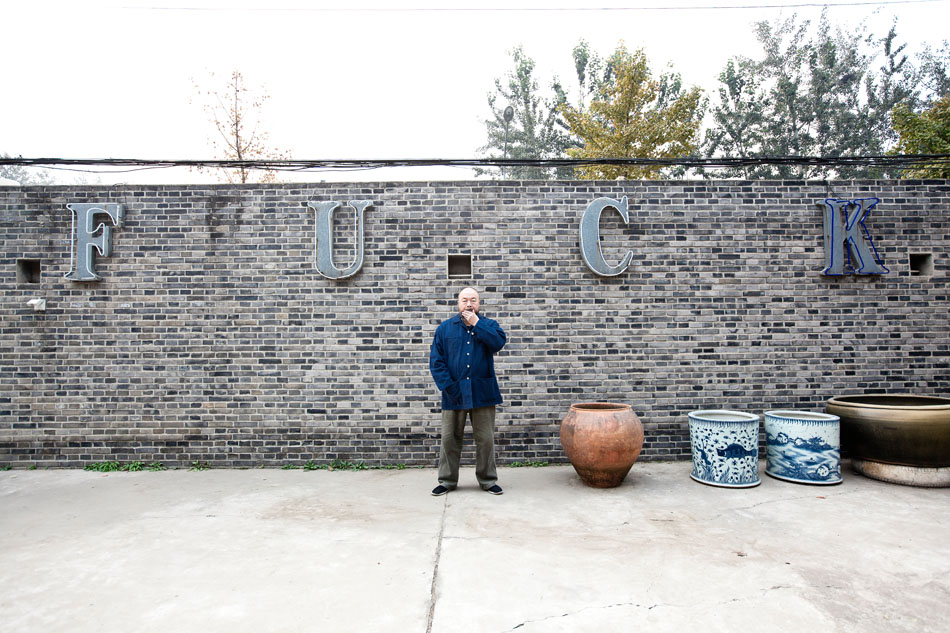
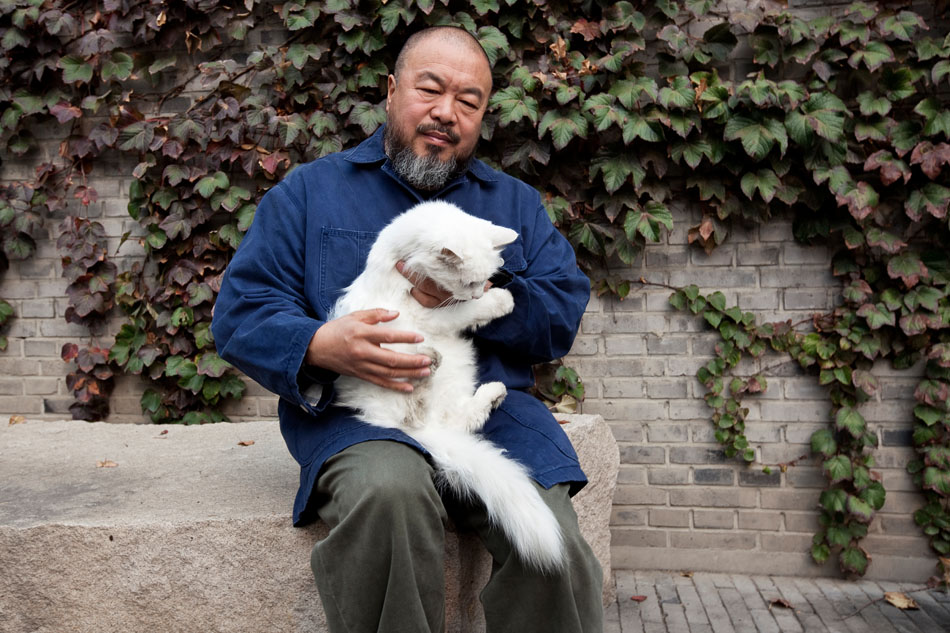
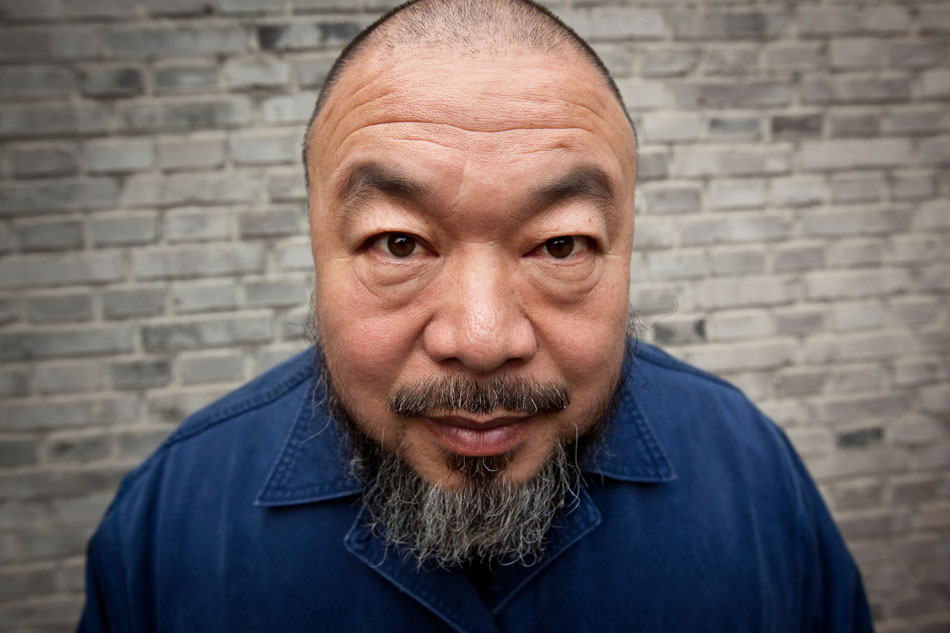
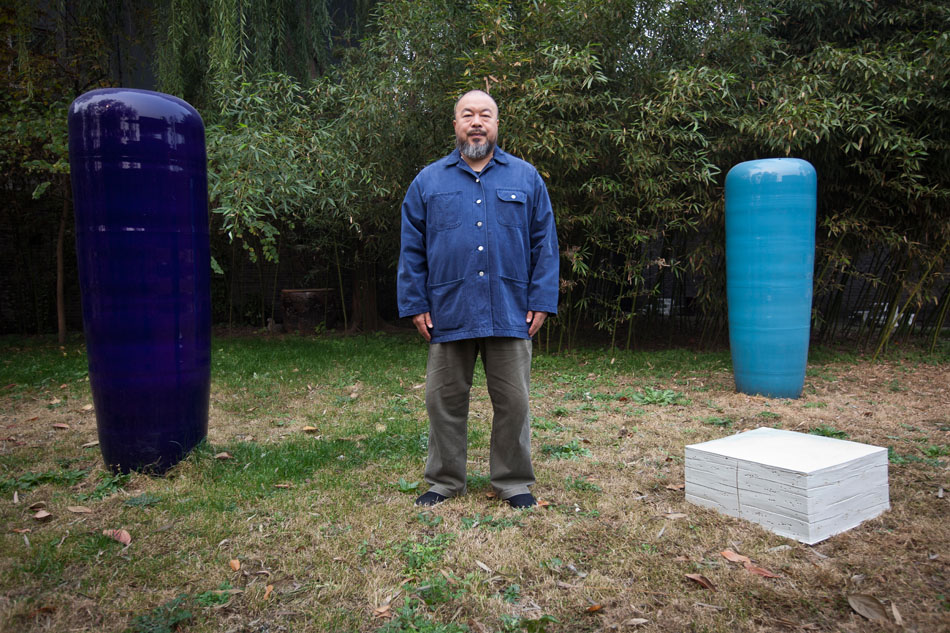
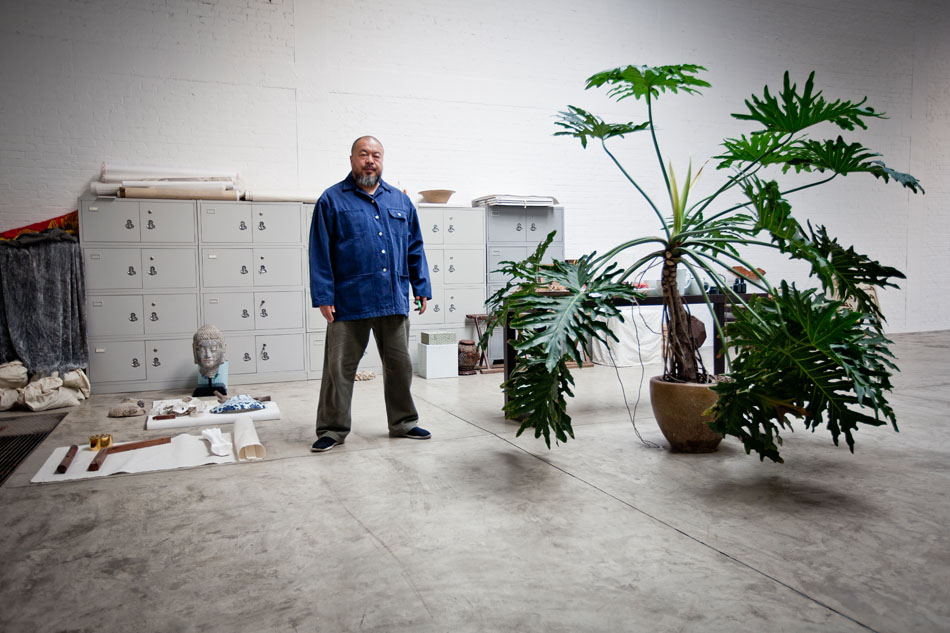
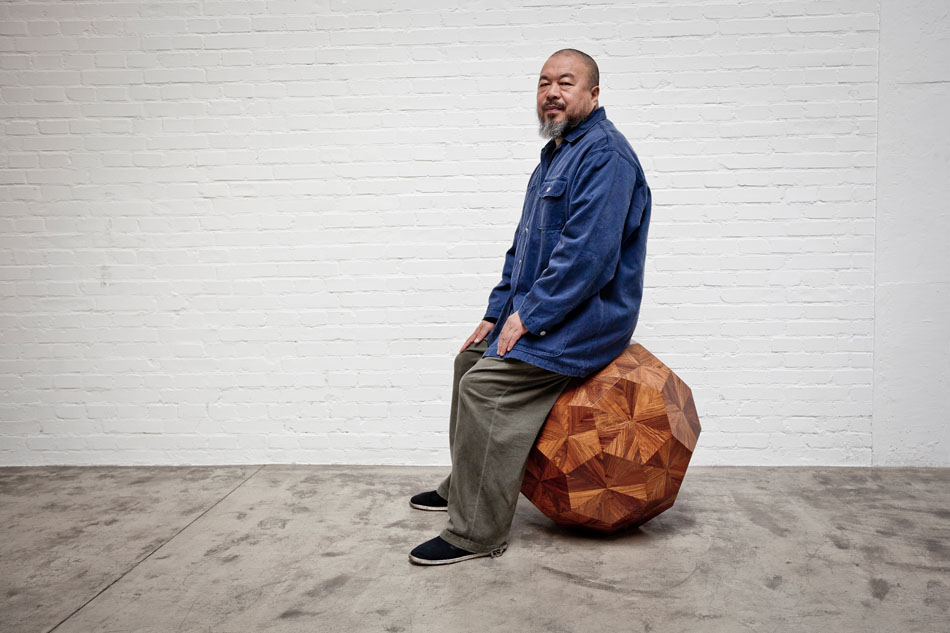
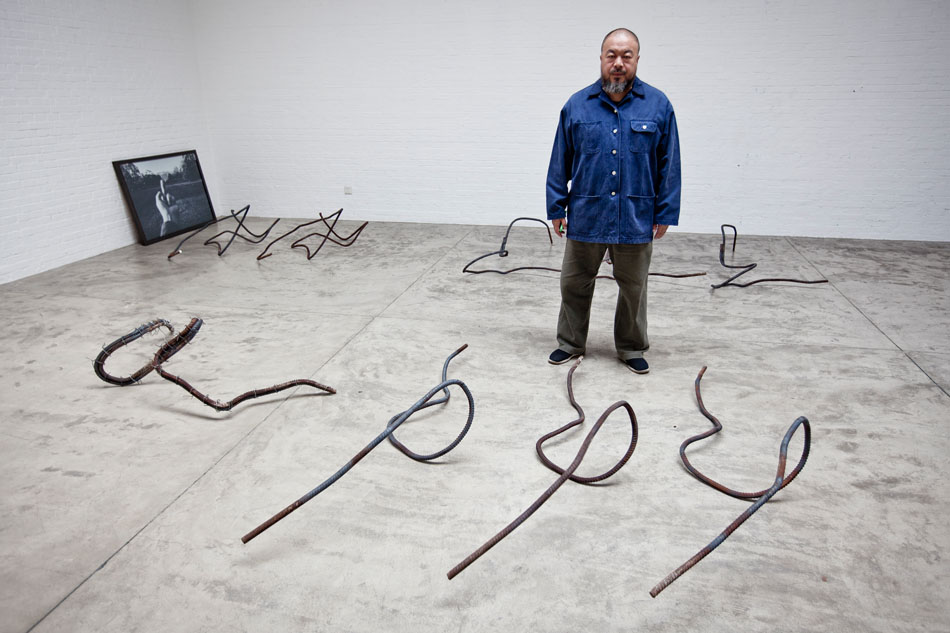
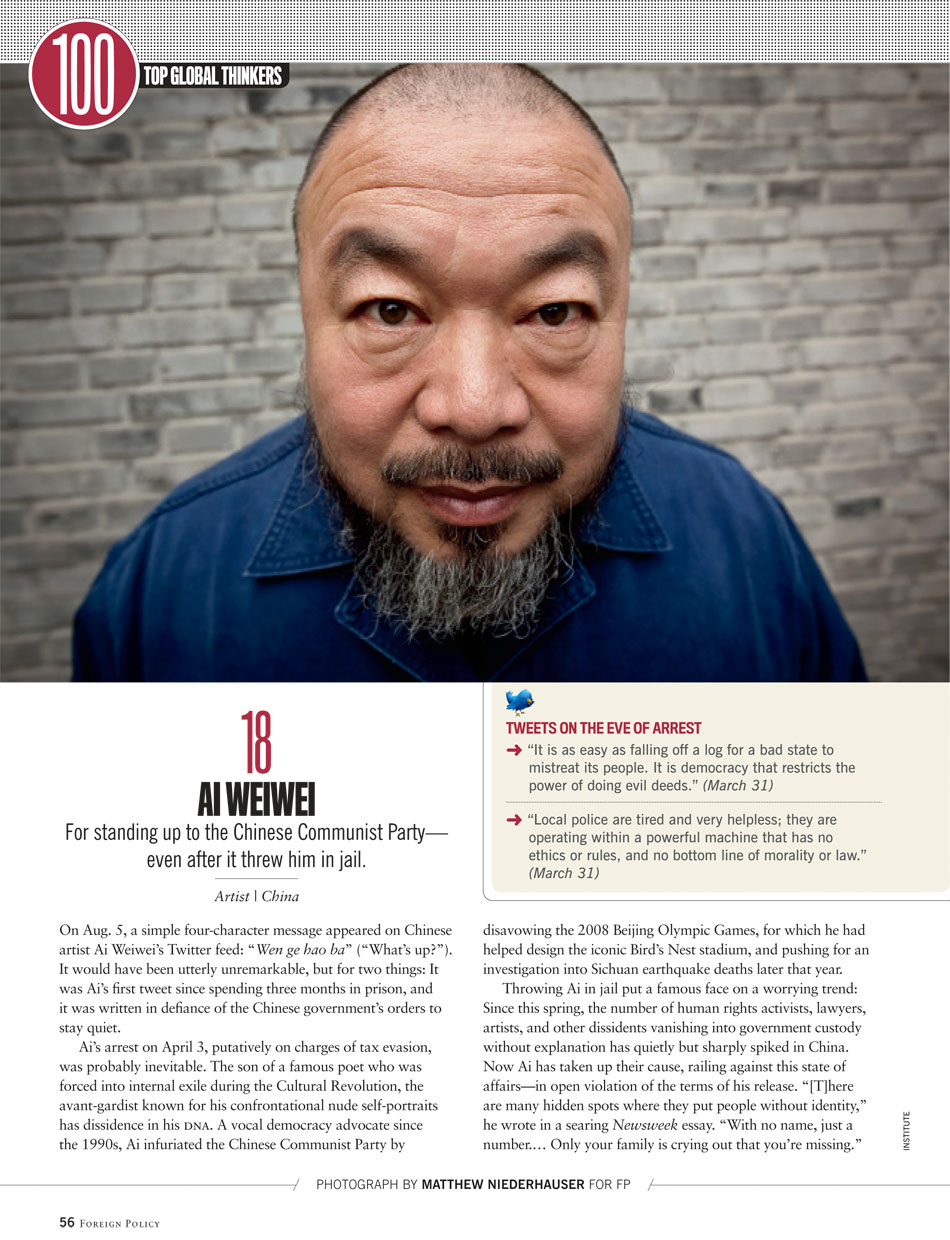
Jul 24, 2011 | Clippings, Portraits
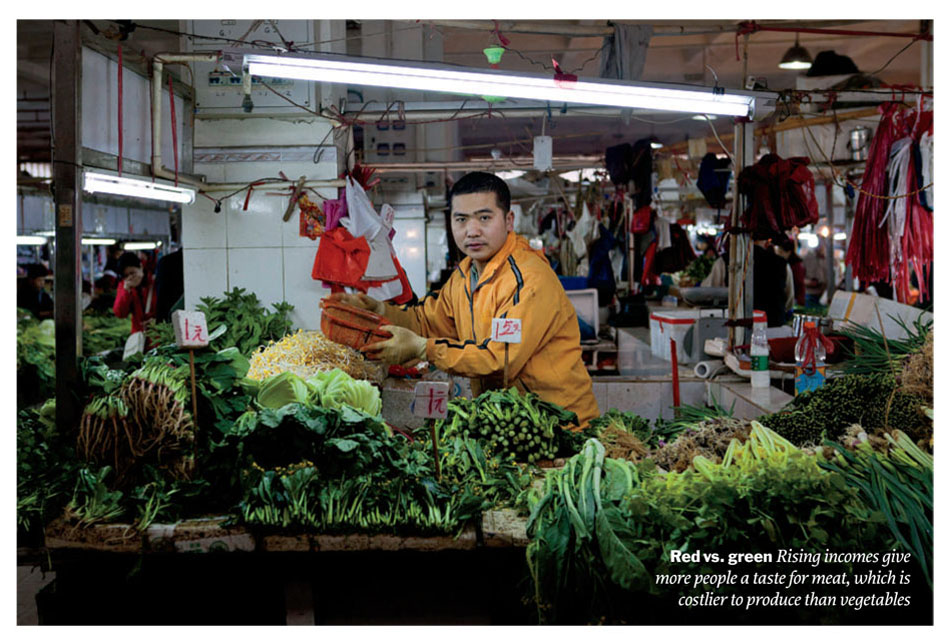
One of my first assignments for Time Magazine is finally in print. I spent a few days in Guangzhou earlier this year shooting formal portraits of vegetable stall owners for an article on rising global food prices. A combination of natural disasters and inflation continues to create a spike in food prices across China. Affordable basic necessities such as electricity, food, water and transportation are always a mainstay of the Chinese Communist Party, but these increases seem to be beyond their control. Consumption of food across China is rising dramatically in line with increased wealth in both rural in urban areas. Everyone wants pork and extra rice at dinner. Many of the figures in the article are actually quite alarming. Global food prices already increased 39% over the past year, food production must increase 70% by 2050 to meet the demand of swelling populations and the average amount of meat people consume has doubled over the past three decades. Despite our profound ability to manipulate our environment, we are going to have to rectify many of our eating habits, not only to combat increased food demand, but also to stave off the rising spectre of obesity. Still, I am going to have my fill of tacos while I am in New York City this month.
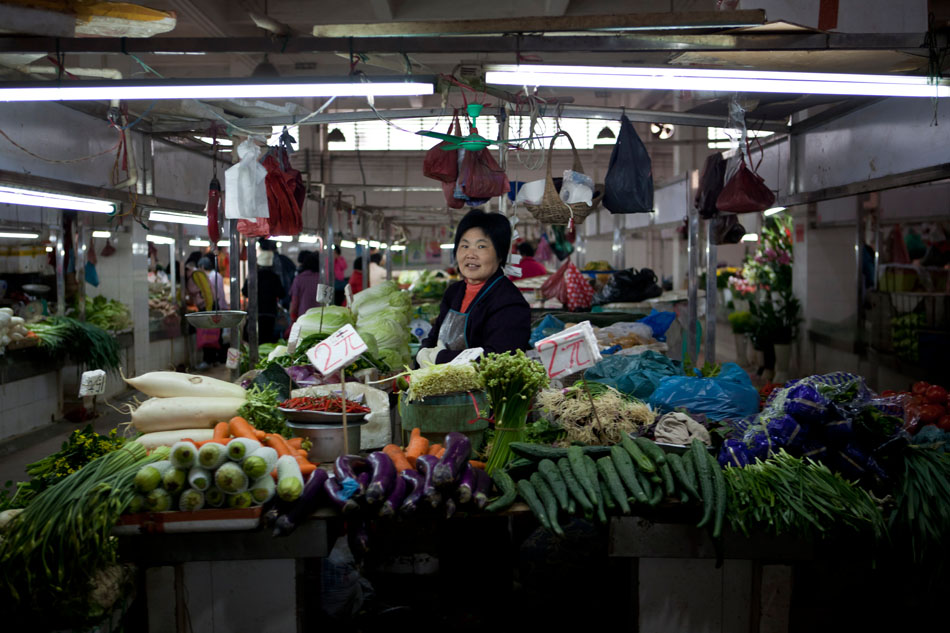

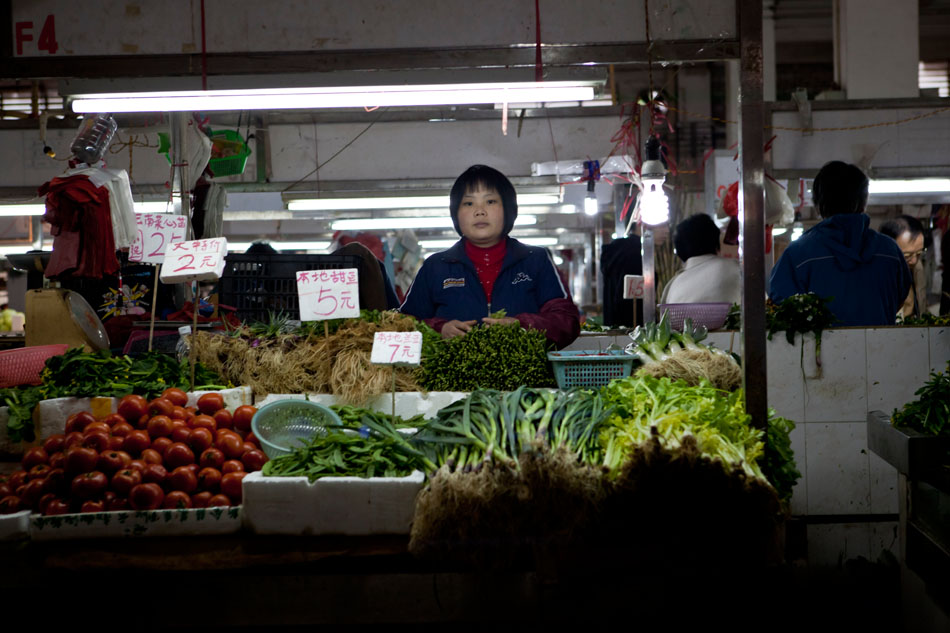
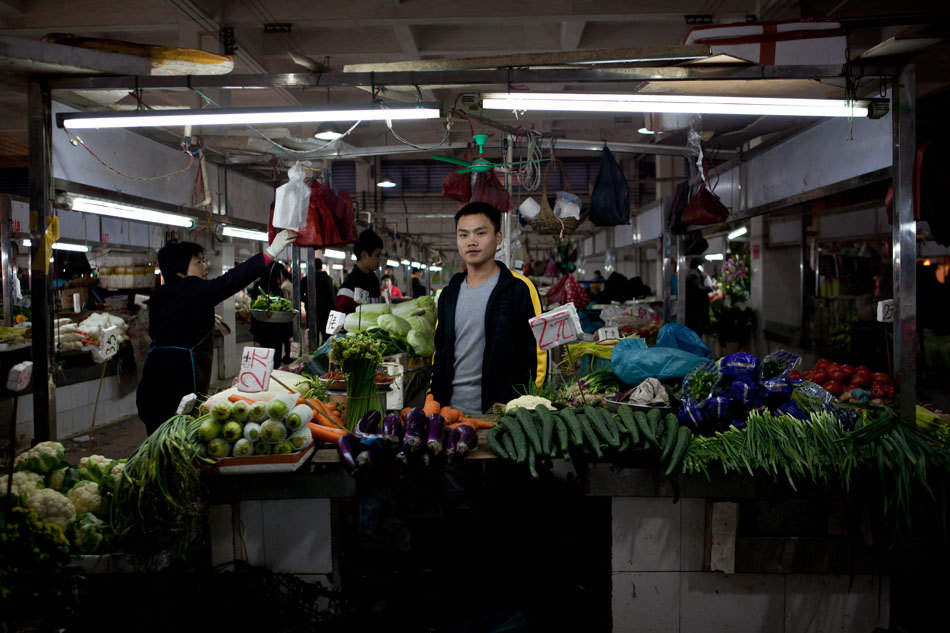
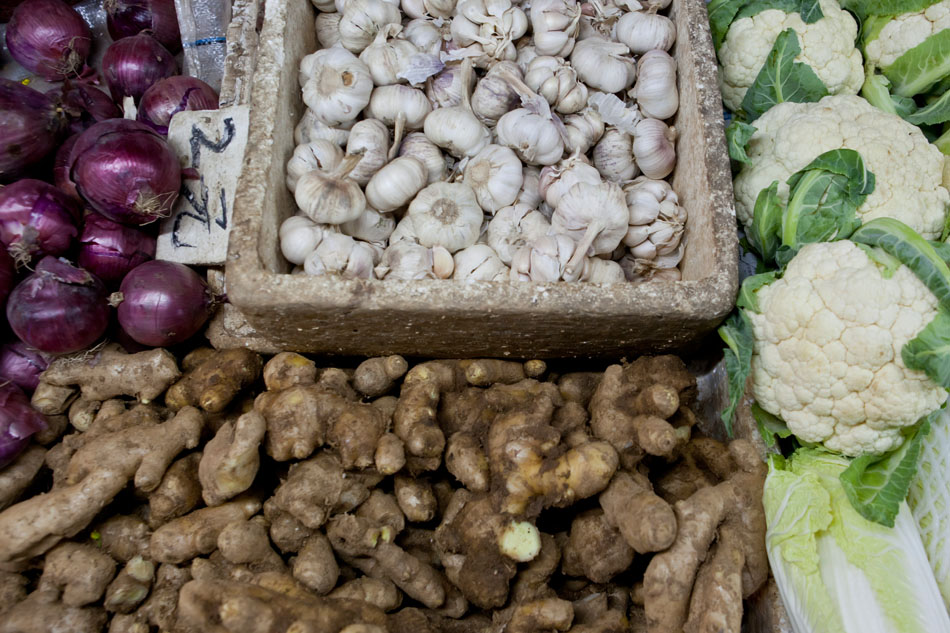
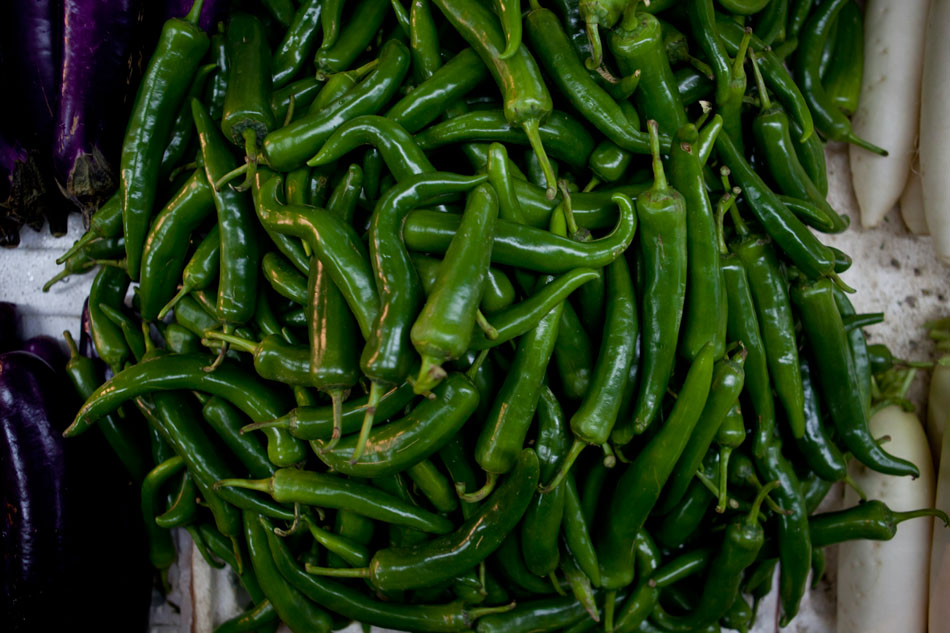
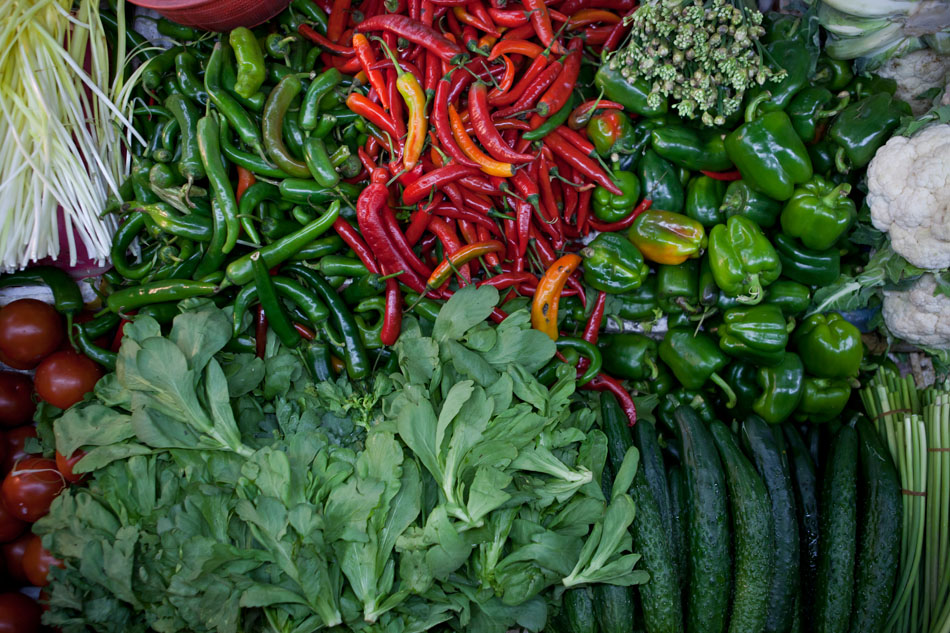
Jul 2, 2011 | Clippings, Portraits
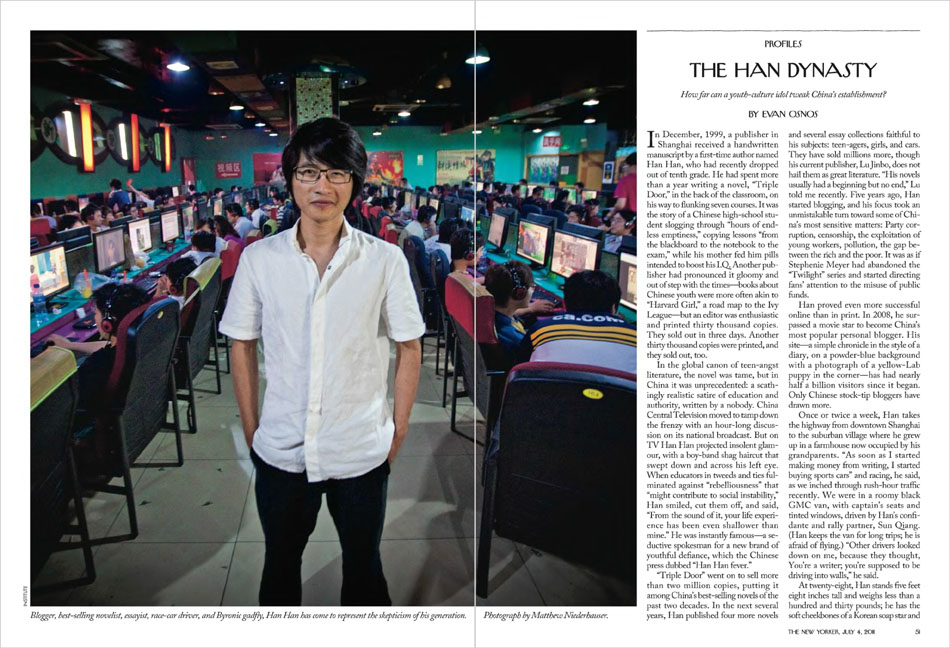
Han Han/韩寒 is China’s bad boy blogger, pop star, race car driver, lady killer and political-dissident-dabbler extraordinaire. His personal blog has garnered upwards to half a billion hits, and he ranked second in the 2010 Time 100 Poll for the most influential people in the world (granted there was a viral movement in China to boost his rankings). This week Evan Osnos profiled him in The New Yorker and my portrait accompanied the piece (there is a paywall, but Evan posted two related blog entries). Photographing Han Han in Shanghai was surreal. I think he is inured to contrived studio locations so he seemed a bit surprised when I met him on the street and started dragging him around to dirty internet cafes just off the Bund. Still, Han Han went with the flow and fully cooperated despite the ad hoc nature of the shoot. Quite frankly he is really easygoing and always down for a joke. A few people recognized him on the street and at the last Internet cafe we visited where I shot the published portrait, the manager flipped out that Han Han was present and allowed us to do whatever we wanted. Still, his popularity is a double-edged sword. Some people were scared to let them into their establishments while others couldn’t believe their luck.
After shooting Han Han in Shanghai I got to meet up with him one more afternoon at the Zhuhai International Raceway, just outside Macau. He was in full race mode. Bantering with the other drivers and strutting in and out of the pit, Han Han seemed at ease in the air conditioned confines of his sponsor tent. I feel Han Han is actually rather crowd averse. He mentioned that he was working on a new book, but otherwise seemed a bit resigned to his current daily routine – keeping things subdued ever since the crackdown on other outspoken activists around China. There is a boyish air to Han Han, and he is just as pleased to hone his skills behind the wheel instead of injecting caustic commentary into the Chinese zeitgeist. Despite the whirlwind of cars and speculation, Han Han is in no rush and has plenty of time to devise his machinations.
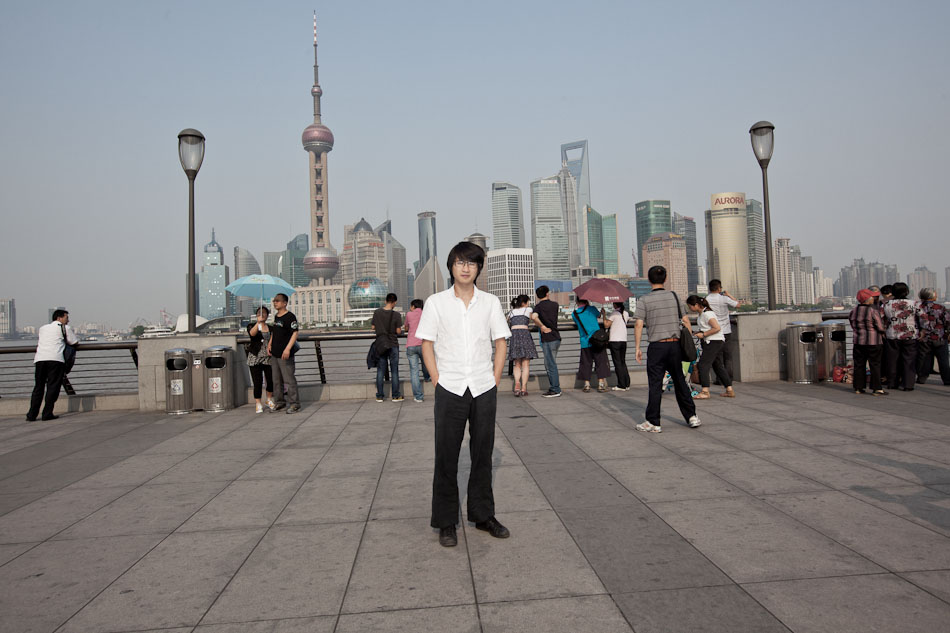
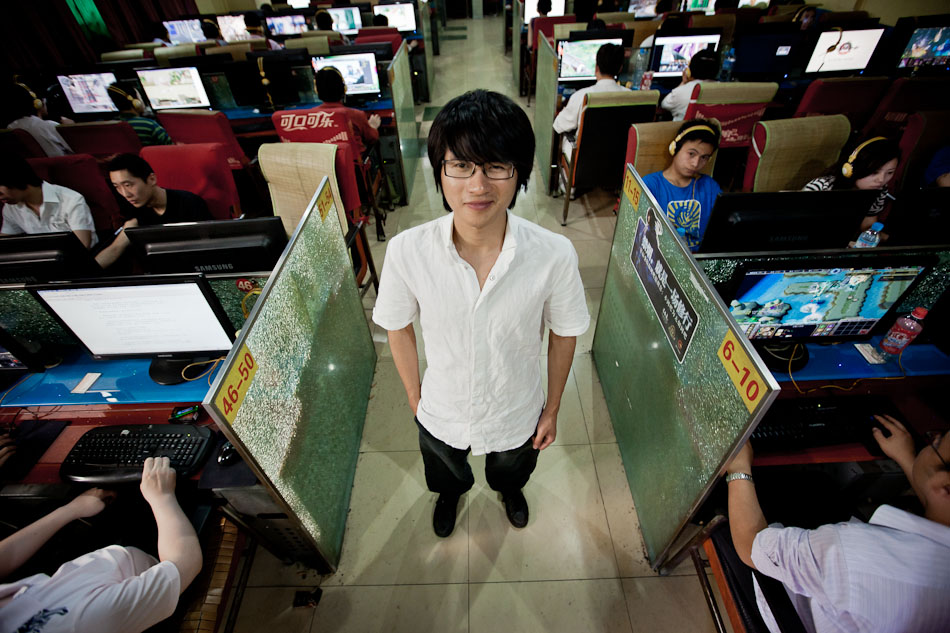
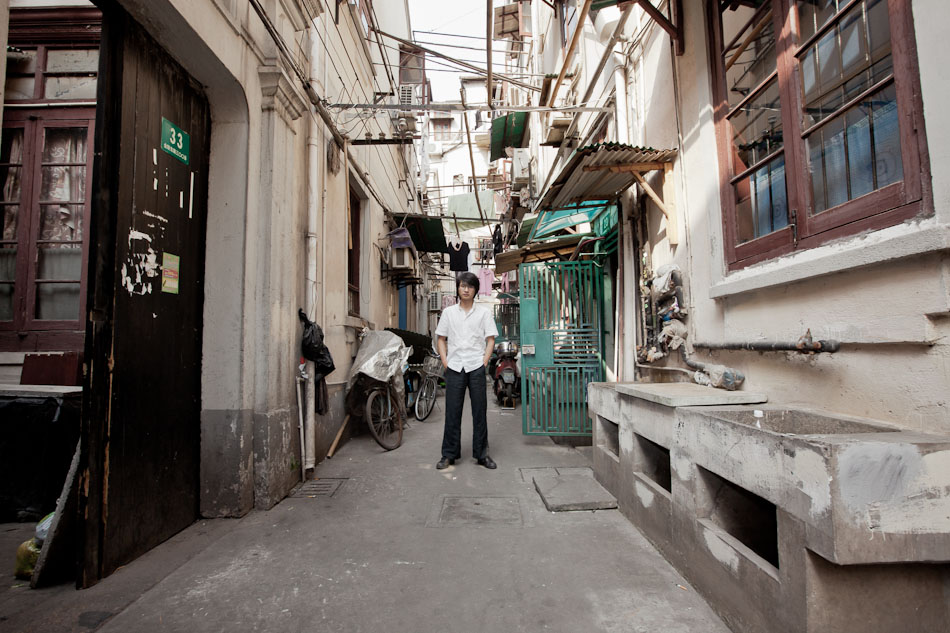
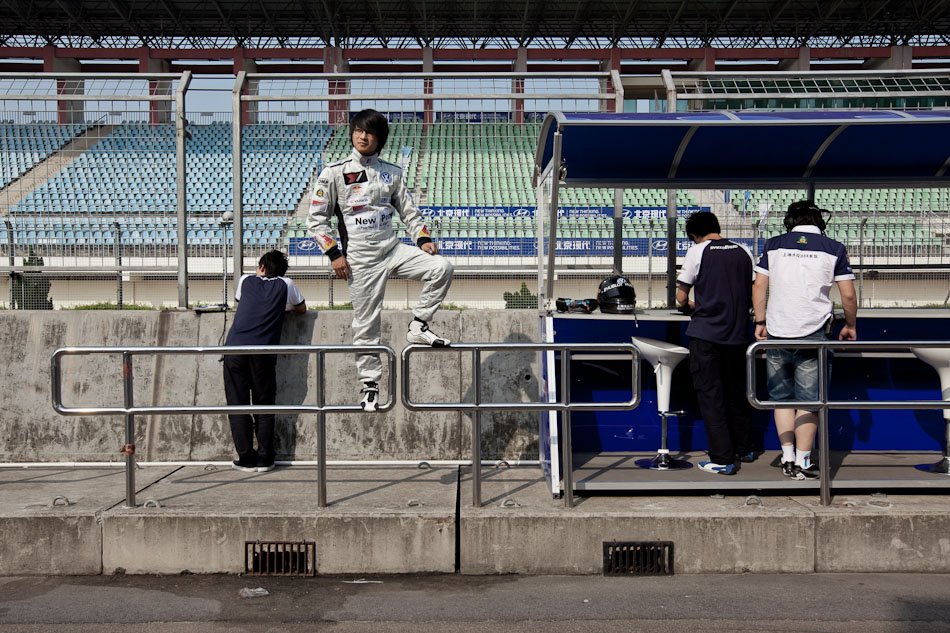
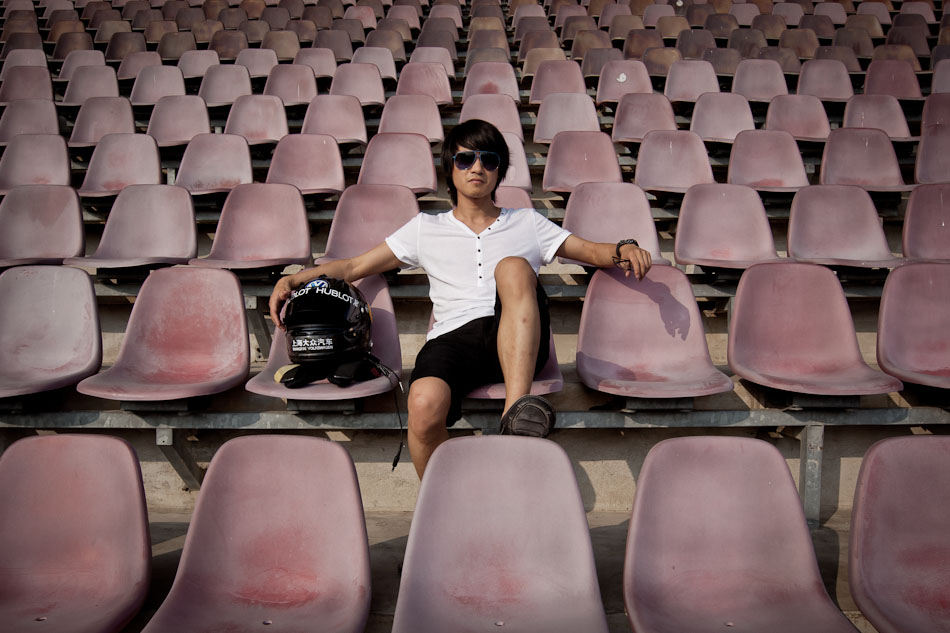
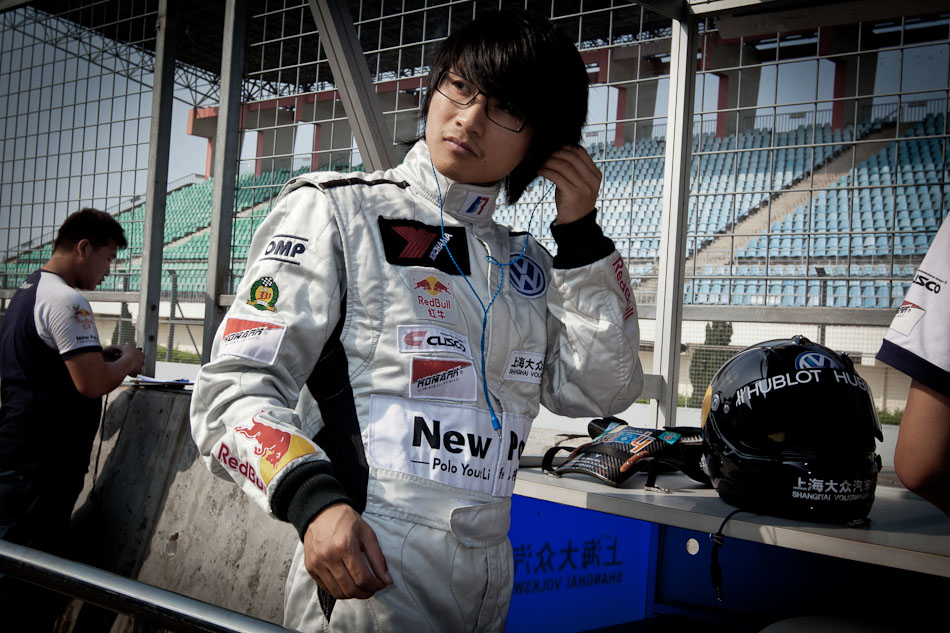
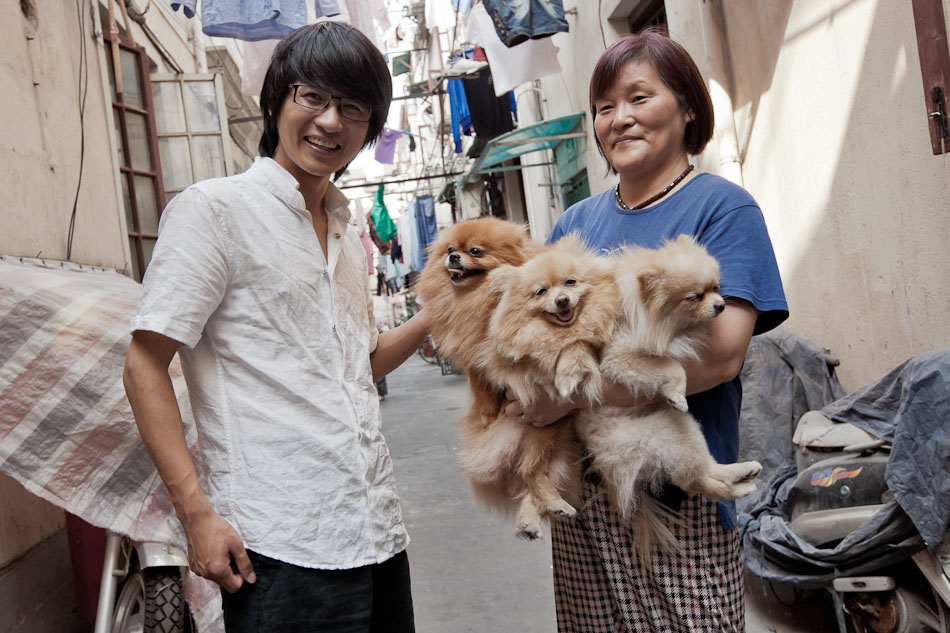
May 29, 2011 | Clippings, Fashion, Music, Portraits
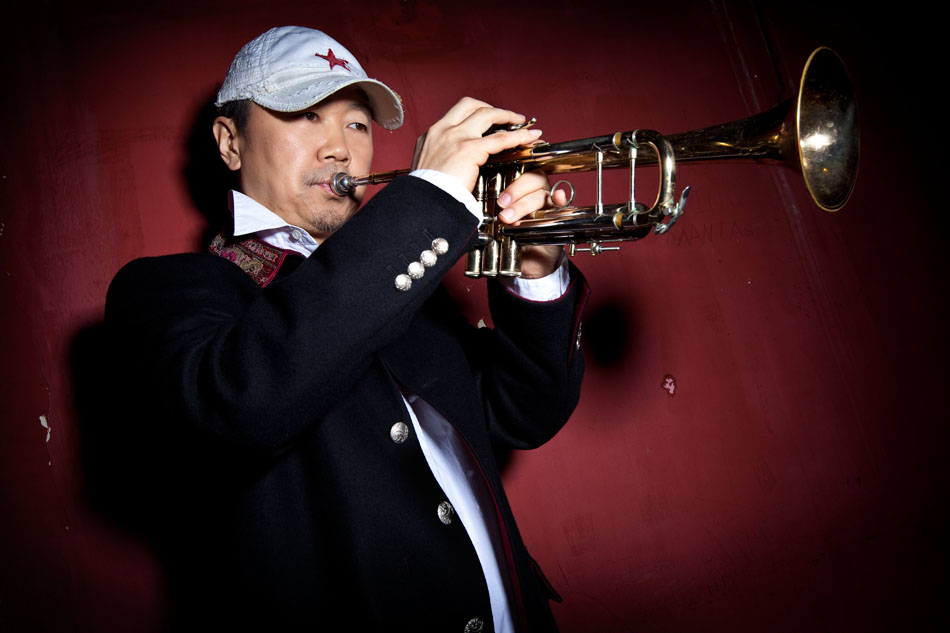
Thanks to my new friend Alex Chao, who just arrived in Beijing to take over art direction at China Vogue, I was able to contribute for the first time to China Vogue this month. It was also a perfect match since the magazine was running a big music issue and decided to let me cue up on some of the old school rockers in China including Cui Jian/崔健 (the godfather of Chinese rock), Shen Lihui/沈黎辉 (general rocker and founder of Modern Sky) and Zhang Youdai/张有待 (the DJ who introduced rock to the masses). First of all, I was very excited to get a chance to shoot Cui Jian on the D-22 red wall. He really is a pillar in the history of Chinese rock and greatly influenced a whole generation of China with his anthem “Nothing to My Name” which became a rallying song for students in China during the 1980s. Although I might not be the biggest fan of some of Shen Lihui’s music, his importance as the founder of the Modern Sky music label and festival production company is undisputed. When other record companies refused to release his music in 1997, he went his own way and founded Modern Sky to support a new generation of Chinese rockers and then continued to take this music to larger audiences with the Modern Sky Music Festival and Strawberry Music Festival. Shen Lihui will undoubtably be a force in the future of alternative music in China for some time to come. Although I had never heard of Zhang Youdai before, he seems to be an instrumental character in the history of rock in China as well. He became a DJ and host on Beijing Music Radio back in 1993 and introduced a wide range of music to youth across China. He is a true shaker in China’s emerging entertainment market and is rocking out to an Eric Clapton LP in the China Vogue portrait. Mad respect.
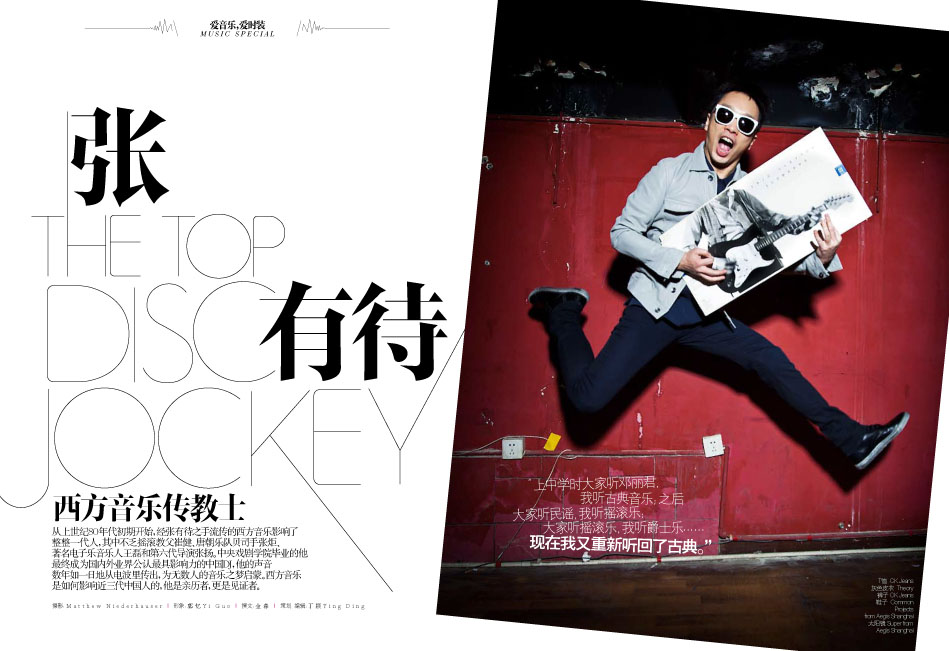
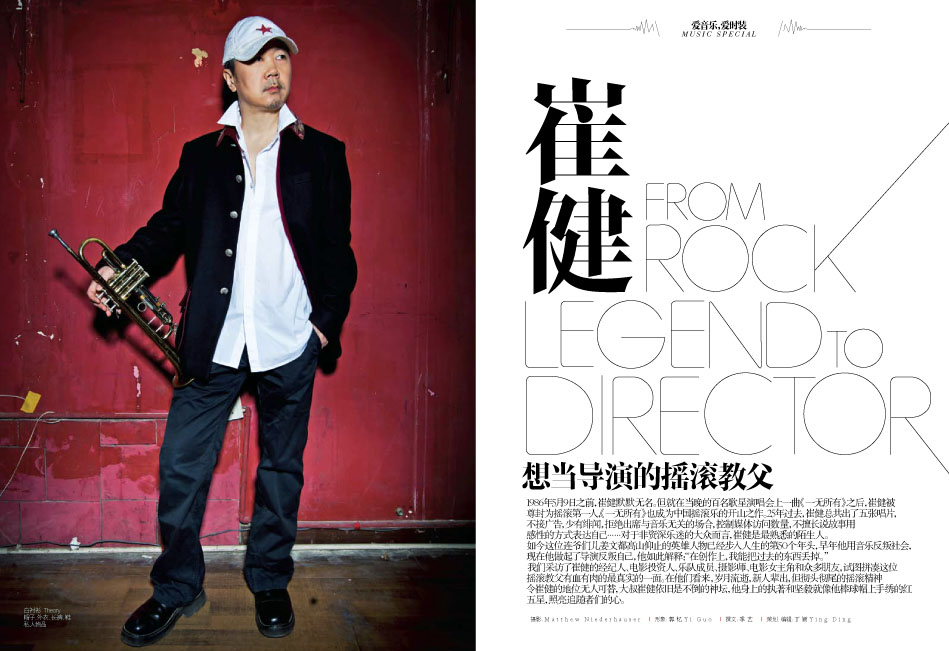
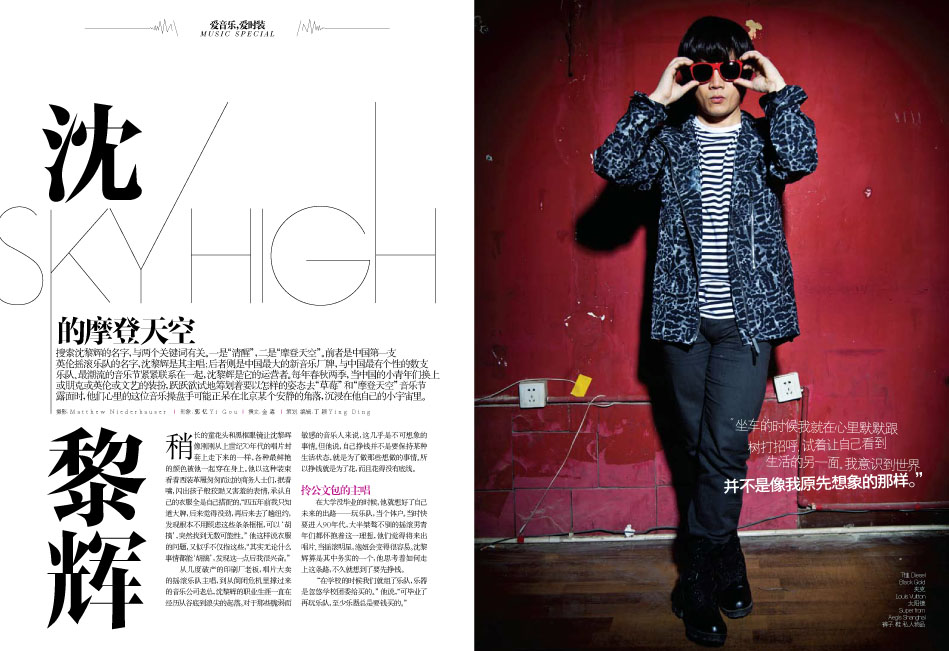
Feb 18, 2011 | Portraits, Youth
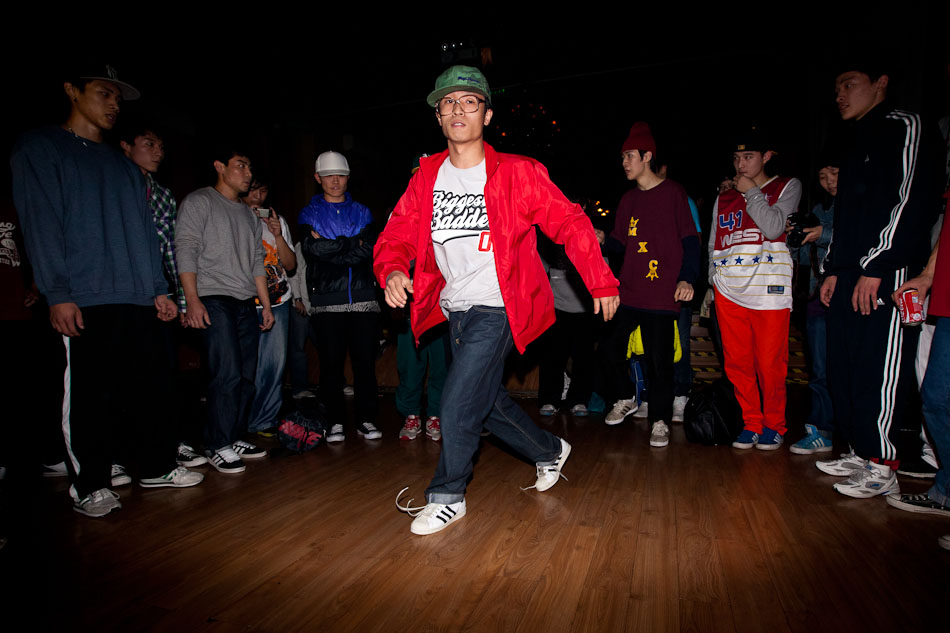
Getting down to funky beats in China has been around much longer than grabbing the mic and spitting rhymes. Many point to pirated tapes of Breakin’ 2: Electric Boogaloo getting wide circulation in the late eighties as really triggering the b-boy and b-girl movement. More established breakdancing scenes in Korea and Japan also influenced and catalyzed rockers in China. Now there are dance crews all over major cities with Beijing and Shanghai at the epicenter of this urban dance movement. One of the best places to catch these kids throw down on the dance floor in Beijing is the Section Six hip hop party held on the last Saturday of every month at Yugong Yishan, but competitions are held on the regular throughout the city. Otherwise there are plenty of dance studios in town if you feel like practicing before busting a move in public.

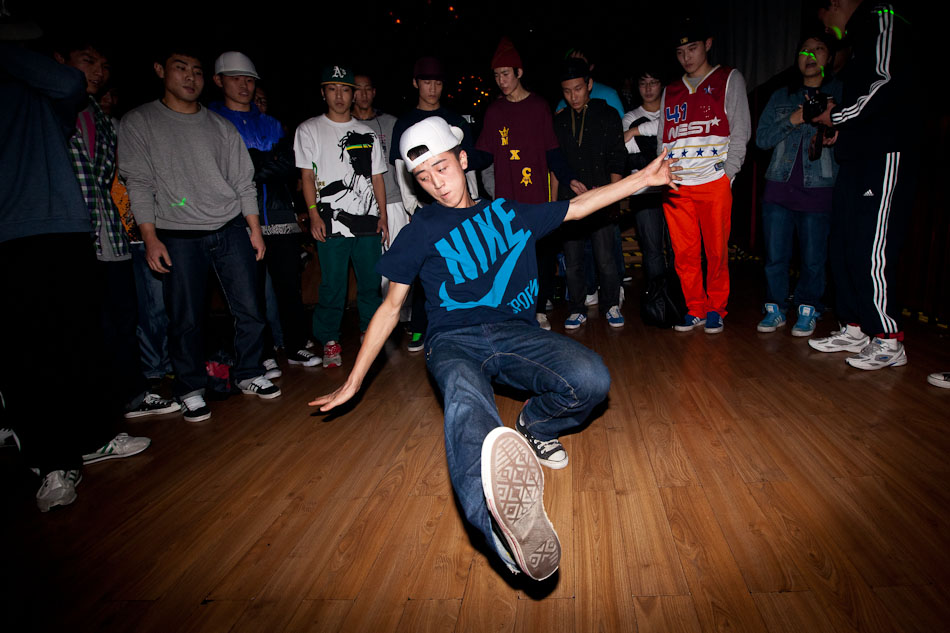

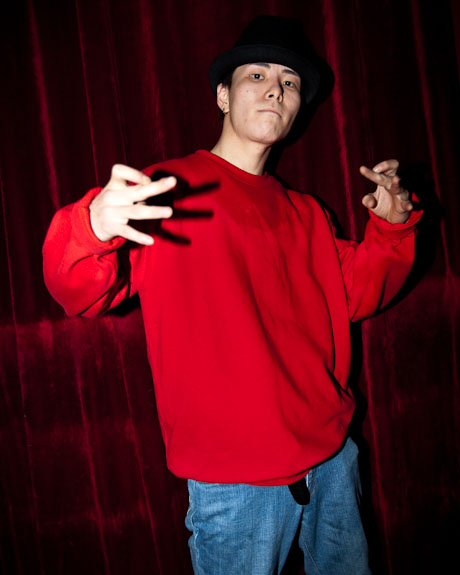
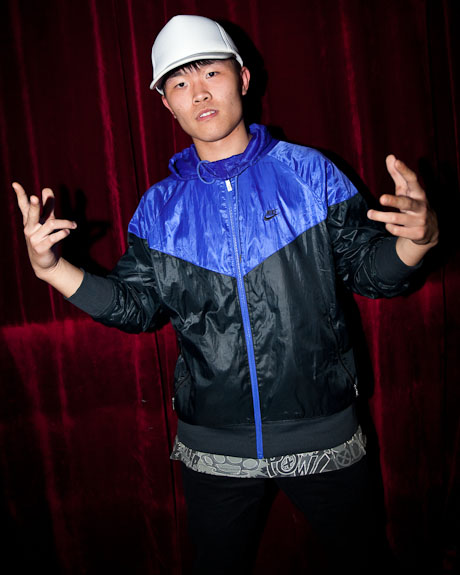
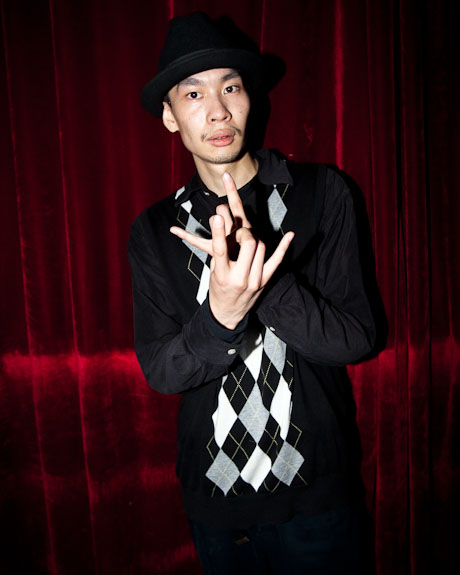
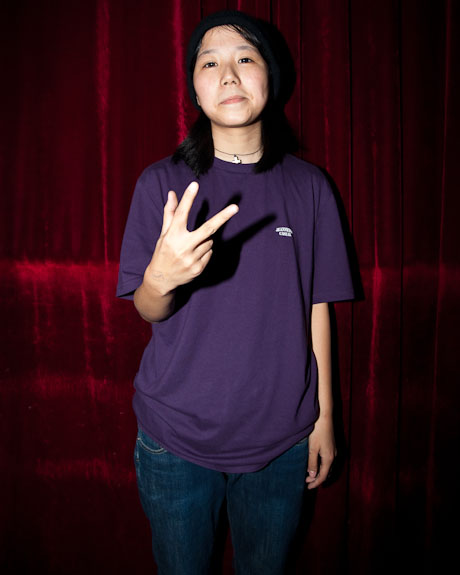
Sep 15, 2010 | Music, Portraits, Youth

The Generation 6 concert at Yugong Yishan featured all the young bucks in Beijing’s rock underground including Residence A, Lazy Camels, Me Guan Me, Mr. Graceless, Rustic, Birdstriking, and Flyx. Musicians in Beijing refer to a wave of new bands from a certain age group as a generation. The first came with China’s godfather of rock, Cui Jian, while the sixth generation is the youngest and still cutting their teeth. This was definitely a culmination point for many of them in so far as they are becoming the defining bands from a fresh crop of performers around the city. Rustic came in with the most momentum after securing the Global Battle of the Bands crown earlier this year – a major triumph for everyone involved in the Beijing rock and punk scene. Otherwise Lazy Camels and Mr. Graceless put on strong sets. The following videos feature outtakes from Lazy Camels, Me Guan Me, Mr. Graceless, and Birdstriking along with a full track from Rustic. Enjoy.
